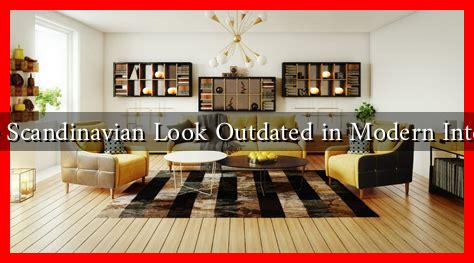-
Table of Contents
Is the Scandinavian Look Outdated in Modern Interiors?
The Scandinavian design aesthetic has long been celebrated for its simplicity, functionality, and minimalism. Originating from the Nordic countries, this style emphasizes clean lines, natural materials, and a neutral color palette. However, as design trends evolve, many are left wondering: is the Scandinavian look outdated in modern interiors? This article explores the current relevance of Scandinavian design, its evolution, and how it can coexist with contemporary styles.
The Essence of Scandinavian Design
Scandinavian design is characterized by several key elements:
- Minimalism: A focus on simplicity and decluttering.
- Functionality: Every piece of furniture serves a purpose.
- Natural Materials: Use of wood, leather, and textiles that promote warmth.
- Neutral Color Palette: Whites, grays, and muted tones dominate the color scheme.
- Connection to Nature: Large windows and indoor plants are common to bring the outdoors in.
These elements have made Scandinavian design a favorite among homeowners and designers alike, promoting a sense of calm and order in living spaces.
Current Trends in Interior Design
While Scandinavian design remains popular, the interior design landscape is constantly evolving. Recent trends include:
- Biophilic Design: Integrating nature into interiors through plants and natural light.
- Maximalism: A shift towards bold colors, patterns, and eclectic decor.
- Industrial Style: Incorporating raw materials like metal and concrete.
- Smart Homes: The integration of technology into home design.
These trends suggest a departure from the minimalist ethos of Scandinavian design, leading some to question its relevance in modern interiors.
Is Scandinavian Design Outdated?
Despite the emergence of new trends, Scandinavian design is far from outdated. Here are several reasons why it continues to thrive:
- Timelessness: The principles of Scandinavian design are rooted in functionality and simplicity, making them timeless.
- Adaptability: Scandinavian elements can easily blend with other styles, such as industrial or bohemian, creating a unique aesthetic.
- Sustainability: The focus on natural materials and craftsmanship aligns with the growing demand for sustainable living.
- Comfort: The cozy, inviting nature of Scandinavian interiors resonates with the modern desire for comfort in home environments.
For instance, the rise of the “hygge” trend, which emphasizes coziness and well-being, has roots in Scandinavian culture and continues to influence interior design choices worldwide.
Case Studies: Scandinavian Design in Modern Interiors
Several contemporary designers and brands have successfully integrated Scandinavian design into modern interiors:
- Muuto: This Danish design brand offers a fresh take on Scandinavian aesthetics, combining traditional elements with modern innovation.
- HAY: Known for its vibrant colors and playful designs, HAY reinterprets classic Scandinavian styles for a younger audience.
- Fjords: This Norwegian furniture brand emphasizes comfort and sustainability, showcasing how Scandinavian design can evolve while maintaining its core principles.
These brands demonstrate that Scandinavian design can adapt to modern tastes while retaining its essence.
Conclusion: The Future of Scandinavian Design
In conclusion, while new trends in interior design may challenge the dominance of Scandinavian aesthetics, it is far from outdated. Its timeless principles of functionality, simplicity, and connection to nature continue to resonate with modern homeowners. As the design landscape evolves, Scandinavian design will likely adapt and coexist with emerging styles, proving that good design is always relevant.
For those interested in exploring more about Scandinavian design and its impact on modern interiors, resources like Scandinavian Design provide valuable insights and inspiration.

